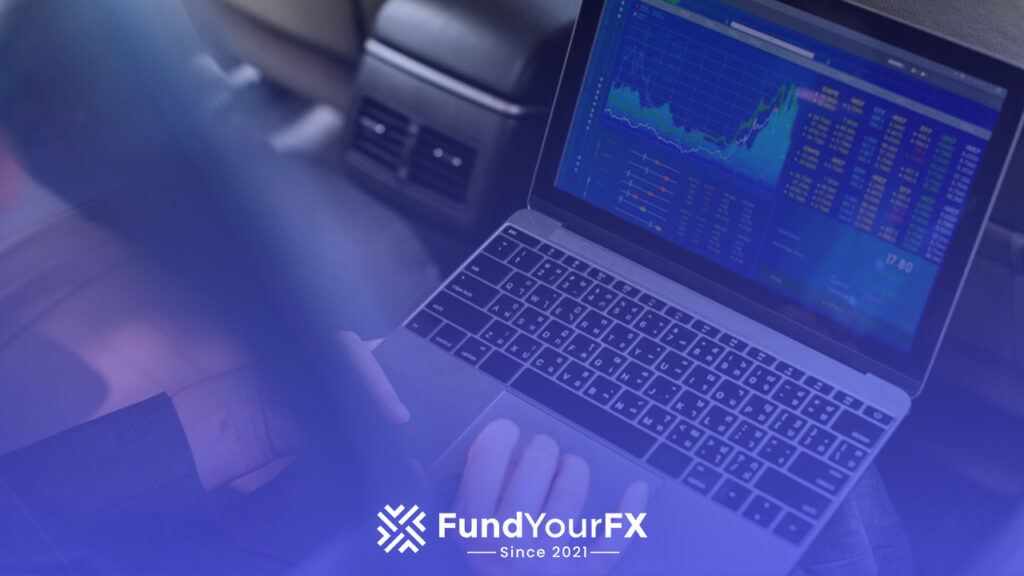Forex trading, also known as foreign exchange trading, is the process of buying and selling currency pairs in a global marketplace that operates 24 hours a day, five days a week. With an average daily trading volume exceeding $6 trillion, the forex market is the largest and most liquid financial market in the world.
Traders participate in forex for various reasons, including profit opportunities, hedging against currency risks, and portfolio diversification. However, success in forex trading requires a deep understanding of market dynamics, trading strategies, and risk management techniques. This guide will walk you through the fundamentals of forex trading, from understanding currency pairs and market movements to developing effective trading strategies that can help you navigate this dynamic market with confidence. How to trade forex? let’s discuss it on this article.
What is Forex Trading?

Forex trading, or foreign exchange trading, is a dynamic and vast financial market where currencies are bought and sold in pairs, such as EUR/USD or GBP/JPY. With a staggering daily trading volume exceeding $6 trillion, it attracts a diverse group of participants including banks, corporations, and individual traders. Each player has unique motivations, from hedging against currency risks to speculating on price movements. What makes Forex particularly intriguing is its 24/5 operational hours, allowing traders worldwide to engage in transactions almost any time they choose.
How the Forex Market Works
The Forex market, or foreign exchange market, is a bustling global arena where national currencies are traded in pairs, like the popular EUR/USD. The exchange rates of these currencies fluctuate constantly, influenced by factors such as supply and demand, economic indicators, and geopolitical events. With participants ranging from central banks to retail traders, the market operates 24/5, segmented into major trading sessions in cities like Sydney, Tokyo, London, and New York. This continuous trading provides ample liquidity and opportunities for profit, especially through the use of leverage, which allows traders to control large positions with less capital.
Why do People Trade Forex?
People trade Forex (foreign exchange) for a variety of reasons, including:
- Profit Potential: Forex trading offers the opportunity to earn significant profits due to the high volatility and liquidity in currency markets. Traders can leverage their investments to amplify gains.
- 24-Hour Market: The Forex market operates 24 hours a day, five days a week, allowing traders to engage in trading at any time that suits their schedule, unlike stock markets that have fixed hours.
- High Liquidity: Forex is one of the most liquid markets in the world, meaning that traders can enter and exit positions with ease, often at the prices they desire.
- Leverage: Forex brokers typically offer high leverage, allowing traders to control larger positions with a relatively small amount of capital. This can enhance both potential profits and potential losses.
- Diverse Trading Options: Traders can speculate on various currency pairs, enabling them to diversify their trading strategies and exposure to different economies.
- Accessibility: With the advent of online trading platforms, Forex trading has become accessible to individual retail traders. Many brokers offer low minimum deposit requirements and user-friendly interfaces.
- Hedging: Businesses and investors use Forex to hedge against currency risk. For example, a company that operates internationally may trade currencies to protect against adverse currency movements.
- Economic Indicators: Forex traders often analyze economic indicators, geopolitical events, and market sentiment, which can provide rich insights into market movements and potential trading opportunities.
- Technical and Fundamental Analysis: Many traders enjoy using technical analysis (charts and indicators) or fundamental analysis (economic data and news) to make informed trading decisions, adding a layer of strategy to their trading.
- Community and Resources: The Forex trading community is vast, with numerous resources, forums, and educational materials available to help traders improve their skills and strategies.
Overall, Forex trading attracts individuals for its potential financial rewards, flexibility, and the intellectual challenge it presents. However, it also carries risks, and it’s important for traders to approach it with caution and proper risk management.
How To Make Money Forex Trading?
Making money in forex trading is an exciting yet challenging endeavor that hinges on a blend of knowledge, strategy, and discipline. To embark on this journey, start by educating yourself about the basics of forex, including currency pairs and market analysis techniques such as technical and fundamental analysis. Selecting a reliable broker is crucial—look for one that is well-regulated and offers favorable trading platforms, spreads, and fees. Craft a solid trading strategy that aligns with your financial goals and preferred trading style, and don’t forget to backtest it using historical data to gauge its potential effectiveness.
Risk management is another cornerstone of successful trading. By setting stop-loss orders and determining appropriate position sizes, you can safeguard your capital and prevent significant losses. Staying informed about economic news and market sentiment will help you make informed decisions. Begin with a demo account to practice without financial risk, and once you’re ready, start trading with a small amount of capital. Remember, patience and discipline are key—stick to your trading plan, maintain a trading journal, and continually refine your strategy as you learn from your experiences. Forex trading is a journey that requires time and persistence, but with the right approach, it can lead to profitable opportunities.
How To Start Trading Forex
To start trading forex, follow these steps:
- Educate Yourself: Understand the basics of forex trading, including terminology, currency pairs, and how the forex market operates. There are numerous online resources, courses, and books available for beginners.
- Choose a Reliable Broker: Research and select a reputable forex broker. Look for factors such as regulation, trading fees, platform features, and customer service. Ensure the broker offers a demo account for practice.
- Open a Trading Account: Once you’ve chosen a broker, you’ll need to open a trading account. This usually requires providing some personal information and verifying your identity.
- Practice with a Demo Account: Use the demo account to practice trading without risking real money. This will help you understand how to place trades, use trading platforms, and develop a trading strategy.
- Develop a Trading Strategy: Create a trading plan that outlines your goals, risk tolerance, and trading approach. Decide on the types of analysis you will use (technical, fundamental, or a combination) and set clear entry and exit rules.
- Learn Risk Management: Understand the importance of managing your risk. Use stop-loss orders, diversify your trades, and never risk more than you can afford to lose on a single trade.
- Start Trading Live: Once you feel confident with your strategy and have practiced enough on the demo account, you can start trading with real money. Start with a small investment to minimize risk as you gain experience.
- Keep Learning and Adapting: The forex market is constantly changing, so continue to educate yourself and adapt your strategy as needed. Stay informed about global economic events that can affect currency prices.
- Review Your Trades: Regularly review your trades to understand what worked and what didn’t. This will help you improve your trading skills and strategy over time.
Remember, trading forex involves significant risk and is not suitable for everyone. Make sure to do thorough research and consider consulting with a financial advisor if needed.
Basic Forex Trading Strategies
Forex trading offers a myriad of strategies that cater to both novice and seasoned traders, each designed to navigate the complexities of the currency markets. One popular approach is the Trend Following Strategy, where traders align their trades with prevailing market movements, using tools like Moving Averages and the Average Directional Index to make informed decisions. Alternatively, the Range Trading Strategy capitalizes on price fluctuations between established support and resistance levels, encouraging traders to buy low and sell high. For those seeking more dynamic opportunities, the Breakout Strategy focuses on capitalizing on price movements that occur when currency pairs break out of defined ranges, often signaling strong market momentum.
In addition to these strategies, traders can explore Momentum Trading, which harnesses the power of price movements to capture profits, or the Carry Trade Strategy that leverages interest rate differentials between currencies for potential gains. For those who prefer quick trades, Scalping allows for capturing small price movements over short timeframes, while Fundamental and Technical Analysis strategies rely on economic indicators and chart patterns, respectively, to guide trading decisions. With a diverse set of strategies at their disposal, forex traders can tailor their approach based on their individual risk tolerance and market outlook, making the currency market an exciting arena for financial exploration.
Pros and Cons of Trading Forex

Trading forex, or foreign exchange trading, involves buying and selling currency pairs in a decentralized market. Like any investment opportunity, it has its pros and cons. Here’s a breakdown:
Pros of Trading Forex
High Liquidity:
- The forex market is one of the largest financial markets in the world, with a daily trading volume exceeding $6 trillion. This liquidity allows for quick execution of trades and makes it easier to enter and exit positions.
24/5 Market:
- Forex trading takes place 24 hours a day, five days a week, allowing traders to engage in the market at their convenience without being restricted to a specific time frame.
Leverage:
- Forex brokers often offer high leverage, allowing traders to control larger positions with a relatively small amount of capital. This can amplify profits, though it also increases risk.
Low Transaction Costs:
- Many forex brokers offer low spreads and commissions compared to other markets, making it more cost-effective for traders to enter and exit positions.
Diverse Trading Strategies:
- Forex trading allows for a wide range of trading strategies, from scalping and day trading to swing trading and long-term investing.
Availability of Resources:
- There are numerous educational resources, tools, and platforms available for forex traders, making it accessible for both beginners and experienced traders.
Variety of Currency Pairs:
- Traders can choose from a wide range of currency pairs, including major, minor, and exotic pairs, allowing for diversification and the ability to capitalize on different economic conditions.
Cons of Trading Forex
High Risk:
- The potential for high rewards comes with significant risks. Leverage can amplify losses, and many traders lose money, especially inexperienced ones.
Market Volatility:
- The forex market can be highly volatile, with rapid price movements that can lead to unexpected losses, particularly during economic news releases or geopolitical events.
Complexity:
- Understanding the factors that influence currency prices—such as economic indicators, geopolitical events, and market sentiment—requires significant knowledge and research.
Psychological Pressure:
- Emotional decision-making can lead to poor trading choices. The fast-paced nature of forex trading can create stress, especially during high volatility periods.
Potential for Scams:
- The forex market is less regulated than other financial markets, making it susceptible to scams and unscrupulous brokers. It’s crucial to choose a reputable and regulated broker.
Time Commitment:
- Successful forex trading often requires continuous monitoring of the market, analysis, and discipline, which can be time-consuming.
Lack of Regulation:
- While some countries have regulatory bodies overseeing forex brokers, the market remains largely unregulated, leading to potential risks in terms of broker practices and consumer protection.
Conclusion
Forex trading offers immense opportunities for profit, flexibility, and financial independence, but it also comes with significant risks. Success in the forex market requires a strong foundation in market knowledge, well-tested trading strategies, and disciplined risk management. Whether you’re a beginner or an experienced trader, continuous learning, patience, and adaptability are key to long-term success. By using the right tools, staying informed about economic events, and refining your trading approach, you can navigate the forex market with confidence. Remember, trading is a journey—approach it with a well-structured plan, a clear mindset, and realistic expectations to maximize your chances of success.







